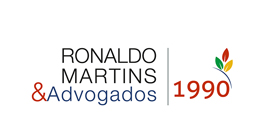Although the trial sessions of the Administrative Council of Tax Appeals have not been fully resumed, especially due to the current strike of tax auditors, the Panels of CARF Higher Court of Tax Appeals have reached tax decisions of great relevance to the interests of taxpayers and in many of the judgments there was a change of understandings previously consolidated within the judging bodies of CARF, among which the following stand out:
- Controlled companies of Brazilian legal entities that receive profits in foreign countries are not subject to taxation in Brazil because, when there is a double taxation agreement between Brazil and the foreign country (in this specific case Argentina), the controlled companies of Brazilian legal entities that receive profits abroad will only be subject to taxation in the respective Contracting State; that is, the place where the legal entity is located, pursuant to a provision expressed in due Bilateral Tax Agreement, which prevents the taxation of the profit made in Brazil. In other words, the legal precedent is therefore established in the sense of prohibiting double taxation. (Case number 16643.720059/2013-15 COMPANHIA DE BEBIDAS DAS AMERICAS – AMBEV);
- The acknowledgements of debts (DIPJ) that were not acknowledged in the Acknowledgement of Federal Tax Debts and Credits (DCTF) are not entitled to the benefit of the “spontaneous denunciation” which article 47 of Law # 9.430/96 refers to. In the case analyzed, the taxpayer had acknowledged the debt in the Integrated Statement of Economic-Tax Information (DIPJ) However, the entry of the respective debt in the Statement of Federal Tax Debts and Credits (DCTF) had not yet been made and, aiming at the benefit of spontaneous denunciation, the amounts with the fine for late payment in the percentage of 20% (twenty percent) were collected. The taxpayer assumed that article 47 of Law # 9,430/96 does not specify what type of statement should be made to acknowledge the debt; however, CARF 1st Panel understood that DIPJ has a declaratory nature and cannot be equated with a debt confession, which would only occur if the debt had been assessed in the Statement of Federal Tax Debts and Credits (DCTF).
It is relevant to note that the benefit of spontaneous denunciation occurs when the taxpayer, after partially acknowledging the tax debt (assessment by approval), presents the proof of full payment of the debt and rectifies the statement before any inspection procedure; that is, the taxpayer reports the difference of the debt along with the presentation of proof of payment. In these cases, the fine for late payment will be 20 percent, not 75 percent.
- It is possible to use “PIS” (Social Integration Program) and “Cofins” (Contribution for Social Security Financing) credits on expenses with freight of finished products between establishments of the same legal entity and with third parties.
The Superior Court of Justice (Appellate Court), in the judgment of Special Appeal # 1,221,170, established the concept of (raw) material, under the criterion of essentiality, considering it essential for the development of economic activity.
Freight/transport is a sine qua non condition for sales to occur, which is why when “transport” is removed from the equation the business activity is impaired; therefore, its essentiality is made clear since it is effectively tied to the line of the sale operation development, which leads to the permission for the use of credits arising from this type of “reflex / indirect” material”, for it does not directly issue from the production/manufacture of the item disposed of/marketed by the taxpayer. (Case # 11080.005380/2007-27 – ELEVA ALIMENTOS S/A).
For further information contact Jessica Kelly de Araujo at RONALDO MARTINS & Advogados, Attorneys at Law, Brasilia Branch.



